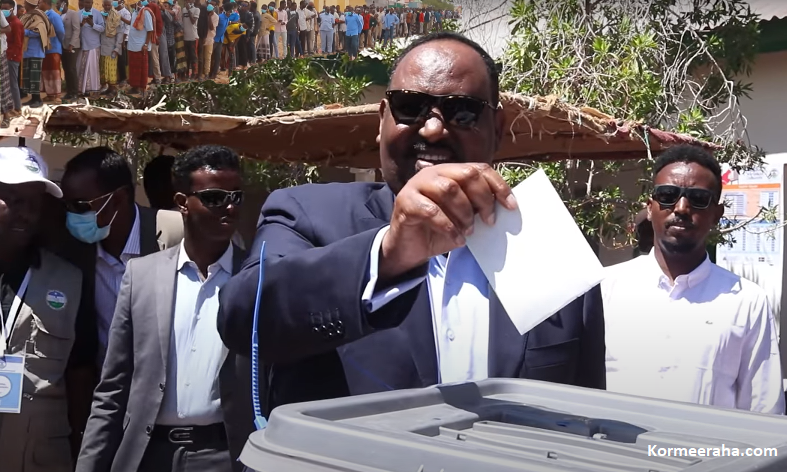
Puntland’s local elections, held on October 25, were welcomed by the Somali public and the international community as an unprecedented democratic achievement. The region has set an example of order, equality and electoral transparency for other parts of Somalia which are still reluctant to take the step towards a participatory electoral system.
The democratic local elections which were part of a pilot project tested in only three districts, namely Qardho, Ufeyn and Eyl, were seen as a first step in the right direction. An estimated 47,000 voters registered to vote in the first ever democratic election. If the same success of this experiment is replicated with other districts with a much larger population, Somalis will witness a break with the past.
However, many Somalis were skeptical about the conduct of a truly free and fair elections under Said Deni. This belief is understandable. This regional leader pushed for the abrogation of universal suffrage agreed in 2018 and ratified by the Federal Parliament. He has also been doing everything it could to prevent federal elections from happening at the national level. Deni, flanked by Jubaland President Ahmed Madobe, is the main obstacle in the federal elections.
For these Puntland partial elections, Deni mobilized a lot of resources to be victorious by spending a lot of money in his electoral campaign and by hampering the campaign of his opponents. The fact that he still lost two of the three districts – Ufeyn and the town of Qardho where he was originally from – showed just how unpopular he is.
Indeed, since Deni is president, the economic level of the Puntlanders fell dramatically. Due to rampant inflation, their buying power of the inhabitants is in free fall. In addition, the administration of Said Deni, whose corruption is notorious, harshly punishes residents who do not pay taxes. Any attempt to protest against the harsh laws of an increasingly authoritarian Deni is quickly repressed. Security forces, too frequently used to crack down on journalists and disgruntled citizens, are themselves underpaid and threaten the privileged few close to power.
This week’s electoral meltdown is a foretaste of what awaits him in the next stage of these elections which would occur in the very dense urban areas like Garowe, the regional capital, Bosaso and Galkayo. These districts, especially Bosaso, have suffered greatly from austerity policies and a stifling police presence, and await Deni at the turn. If by then Said Deni does not find a solution to his decline in popularity by changing the way he governs, his regime risks collapsing.
Deni and his Kaah party received 32% of the vote, with Qardho and Ufeyn massively voting for opposition parties in local council seats. Already, more dynamic opponents, spared from corruption and controversies like Asad Osman Abdullahi and Mahamud Khalif Jabiye, are talking about joining forces and limiting Deni’s excesses.
Their political parties, respectively Mideeye (Unifier) and Sinaan & Cadaalad (Equality & Justice), which gained ground in these elections, agreed to form a political alliance to lead local councils in the districts of Qardho, Ufeyn and even Eyl. They also called on other opposition groups to join a coalition of opposition groups to make constituency changes.
Meanwhile, after the election results were announced, Said Deni, apparently disturbed by his poor performance, attacked President Mohamed Abdullahi Farmajo. In his speech, which had all the appearance of a presidential campaign, Deni lambasted President Farmajo for not having congratulated him on the local elections successful completion and accused him of not wanting a federal election or a one person-one vote system. Said Deni told the Somali president last April that he would block federal elections as long as he, Farmajo, is president. A statement he retracted just after.
Nonetheless, Puntland’s high-profile democratic stammering, painstakingly in progress since 1998, is an undeniable achievement that has demonstrated the readiness of Somali people to embrace a free, fair and transparent multi-party system. The question many are now asking is: Will Deni be as much committed to conducting similar local elections in the remaining 47 districts?
